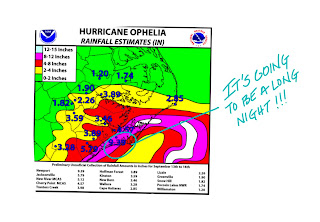By Thomas Kies
I teach creative writing and mentor a writing critique group. At the beginning of the first class, I tell the attendees that I’ll outline what the rules of writing are. And then I’ll let them know, there really aren’t any rules.
For example, Cormac McCarthy and his strange use, or nonuse, of punctuation. He didn’t use quotation marks, used commas sparingly, and rarely included apostrophes. His dialogue and narration flow forced the reader to pay close attention to his writing. His sentence structure was often unusual with strange cadences. He was difficult to read but my God, what a writer.
I’m currently reading a book by Stephen Markley called The Deluge that also breaks a lot of rules. For example, a few months ago, I wrote a blog about head hopping. That is writing in the third person and then abruptly shifting gears and writing in the first person point of view.
Changing a POV in the same paragraph is still verboten. I don’t like it if a writer shifts POV within the same chapter. And I’m iffy when it comes to using it at all within the same book.
But Stephen Markley changes his POV from chapter to chapter depending on the multitude of characters he’s written. First person, third person….even writing about a character who is an opioid addict in the second person.
And it works.
I picked up this book because it takes a damning view of what happens to the world when we allow climate change to continue unabated. Which we’re doing. If you’ve read my fourth book, Shadow Hill, you’ll know that I’m deeply concerned about what we’re doing to our planet. I have four grandchildren, and I’m worried that they’re going to inherit an apocalypse that we helped create.
Next rule broken. There is a wide range of characters to follow.
Are there too many characters in this book? In a story written for the LA Review of Books, Markley said, “The climate crisis is such an enormous problem [that] you can’t, to me, tell it through the one-character point of view—the I, I, I would be a little navel-gazey or overwhelming in a way,” he said. “I knew it needed to be a range of characters, and obviously they had to be different and come at the issue from different angles and different parts of society, from different races, classes, genders, etc. It always had to be like this to me, and it was a matter of finding what voices fit into this world.”
I’m about a third of the way through the book. It’s nearly 900 pages long.
He breaks another rule I wrote about last month. How long should a novel be?
Let me go back to Cormac McCarthy who said, “The indulgent, 800-page books that were written a hundred years ago are just not going to be written anymore and people need to get used to that. If you think you’re going to write something like The Brothers Karamazov or Moby Dick, go ahead. Nobody will read it. I don’t care how good it is, or how smart the readers are. Their intentions, their brains are different.”
Is the book too long? It’s a big topic and he’s covering a lot of ground. The novel begins in 2013 and ends in 2039. Right now, I’m reading what happens, politically, in 2027, and if we continue on the trajectory we’re on now, I think the author is going to be dead on.
Yes, Mr. Markley broke a bunch of rules when he wrote the Deluge, but as I say at the beginning of my class, rules are meant to be broken







